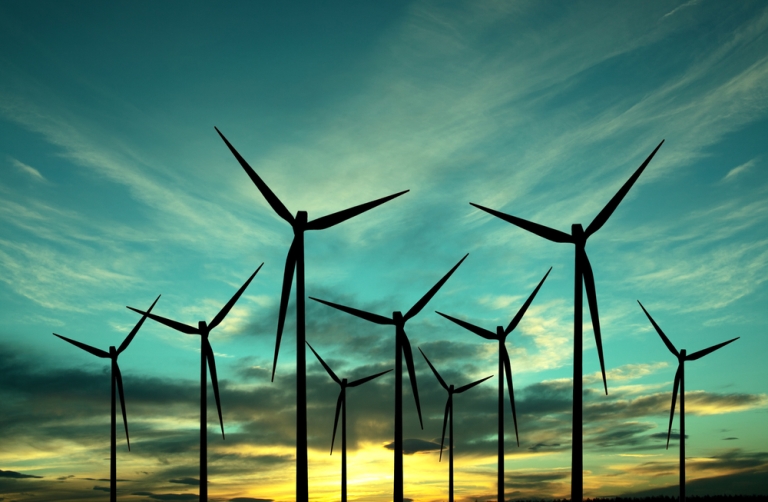With over 36 billion barrels of oil and 200 trillion cubic feet of natural gas, Nigeria has emerged as one of Africa’s biggest energy sectors, attracting significant levels of investment and driving project developments across the entire energy value chain. However, with global capital expenditure tightening due to the COVID-19 pandemic and international finance trends shifting from fossil fuels to renewable resources, African hydrocarbon players such as Nigeria have found themselves competing for investment.
Speaking during the Nigeria country spotlight session at African Energy Week (AEW) 2021, key Nigerian players discussed how the country has positioned itself as an attractive investment destination in 2021 and beyond.
Panel participants included Dr Adedapo Odulaja, Governor of OPEC for Nigeria, and SA-IER, Ministry of Petroleum Resources of Nigeria; Akinwole Omoboriowo II, CEO, Genesis Energy; Kola Karim, Managing Director and CEO, Shoreline Energy International; Olakunle Williams, CEO, QSL-GP; Heine Melkevik, former Managing Director Equinor Nigeria and current Managing Director Business Development, Alta Trading UK Limited; and Lawal Musa, Energy Analyst at the Nigerian National Petroleum Corporation.
Through a complete sectoral restructuring, and by capitalizing on progressive legislature and national energy policies to accelerate investment post-COVID-19, Nigeria has made a strong case for investment. Notably, through the passing of the Petroleum Industry Bill (PIB) on 1 July 2021, Nigeria has taken significant steps to boost oil and gas output while enhancing the sector’s attractiveness for international investment. Comprising 16 Nigerian petroleum laws that outline the framework for petroleum activities, the PIB ensures an enabling environment for investors backed by a transparent and strengthened regulatory framework. At a time when the global energy sector is particularly competitive for foreign capital, the passing of the PIB serves to elevate Nigeria as an energy leader on the global stage.
“The reality is that Nigeria and Africa need more investment in the oil and gas space. The transition is good because you will invest in more renewables, but in order to industrialize we need to invest in oil and gas. It is a gradual and repetitive process. What will happen now is you will have a test again and again of the resolve and attitude of Nigeria. You need to take some risk, as this is a long-term game. The opportunities in Nigeria, from upstream to midstream to downstream are too big to ignore,” stated Melkevik.
Meanwhile, with the passing of the Petroleum Industry Act (PIA), Nigeria has enacted a complete overhaul of the administrative, regulatory and fiscal regime in the energy sector, restructuring key petroleum institutions in order to streamline processes and drive the country’s oil and gas industry expansion. As the country faces challenges of declining oil production from mature fields, coupled with the reduced capital expenditure climate brought about by the COVID-19 pandemic, the PIA aims to enhance the sector’s attractiveness for foreign investment, ensuring a market-driven regulatory environment that will accelerate the country’s industry developments.
“Oil and gas is 90% of Nigeria’s foreign exchange rate. When you talk of ranking and importance regarding the government of Nigeria, it is the industry. Now with the PIA, the world knows it is open for business. What we have seen is the level of engagement being more robust and the value proposition is becoming clear in the markets,” stated Karim.
“It is not that the PIA will be a gamechanger, it is already a gamechanger and the game is already changing. In the weeks to come, everyone will see this. A lot of investors and people who want to invest in the industry are already looking critical and taking more of an interest in it,” stated Odulaja.
“The PIA proved a clear regulatory framework. For any interested candidates, if you are applying for a license, the PIA provides clear requirements and a timeframe by which you must have an answer. Immediately after the passage of the PIA, implementation was put in place. Within the PIA there was a clause to incorporate NNPC within 6 months and this was done in 1 month. This is a journey. It is a transitional journey and the government is focused,” stated Musa.
With a regulatory environment that places an emphasis on stability and transparency, the country is bound to see an influx in foreign capital and international company participation. In addition to driving domestic industry growth, the PIB and PIA both set an incredibly high standard for other resource-rich nations looking at expanding their energy sectors and attracting investment.
In addition to modernized regulatory frameworks, Nigeria has turned to national energy plans to accelerate development across the country. Notably, through the Decade of Gas initiative – a national strategy that aims to position gas at the forefront of the country’s energy agenda – Nigeria is making significant progress to incentivize investment and spur development. The Decade of Gas initiative was launched in conjunction with the country’s National Gas Expansion Program, whereby large-scale project developments have taken off across the country. Projects including the $2.8 billion, 614Km Ajaokuta-Kaduna-Kano (AKK) pipeline connecting the eastern, western, and northern regions of the country, as well as the construction of $10 billion Nigeria LNG Train 7 have all been driven by the country’s gas policies.
“We have made huge progress. Statistics show we are doing less than 10% flares, so we are doing very well. Before the PIA we already had policies in place to reduce flaring. Obviously, we cannot completely reduce flares but under the PIA there is a clear direction and policy in place,” stated Williams.
“Investing in any country is a serious endeavor. The law is now in place, but it is a work in progress. My encouragement is that the law has been passed, there is sufficient capital in the country. There are a lot of hotspots and there are more opportunities than issues. The government has created this wonderful environment for Nigerians to thrive in the energy space. We continue to emphasize that gas is good, gas will enable Africa to industrialize. We have to think of our great grandchildren and make plans for them,” stated Omoboriowo II.

 Naira4 weeks ago
Naira4 weeks ago


 News3 weeks ago
News3 weeks ago
 Education4 weeks ago
Education4 weeks ago


 Social Media4 weeks ago
Social Media4 weeks ago
 Technology4 weeks ago
Technology4 weeks ago
 Investment4 weeks ago
Investment4 weeks ago


 Dividends4 weeks ago
Dividends4 weeks ago
 Economy4 weeks ago
Economy4 weeks ago
















